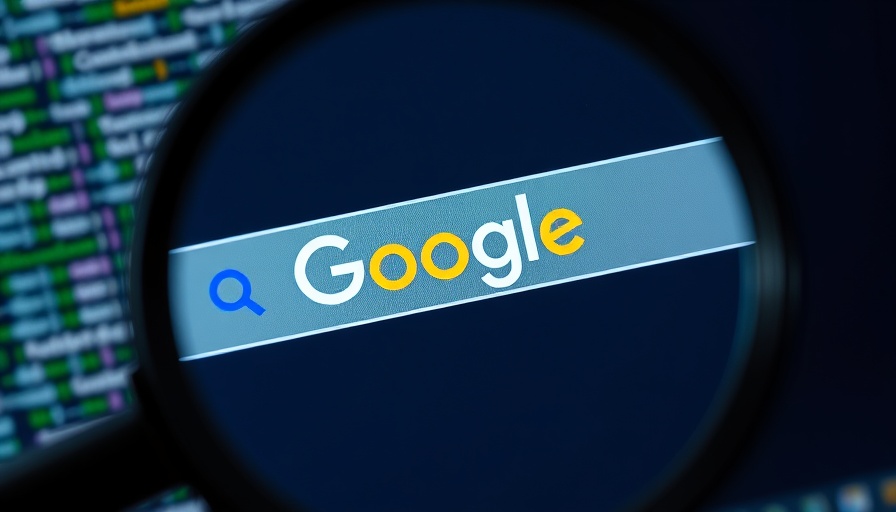
What’s at Stake in Google’s Antitrust Trial?
The Department of Justice (DOJ) is pushing for significant changes to how Google operates as it enters the remedies phase of its antitrust trial. The government aims to compel Google to sell off its Chrome browser and dismantle exclusive partnerships with major device manufacturers like Apple and Samsung. This has raised essential questions about the future structure of digital competition and the landscape of artificial intelligence (AI) in search.
Understanding Google’s Dominance in Search
Google's overwhelming presence in search has often been likened to past monopolies such as Standard Oil or AT&T. Assistant Attorney General Gail Slater states that Google's influence now extends beyond search, integrating into AI technology which may further entrench its market power. The DOJ’s concerns across these domains spotlight the urgency of regulating monopolistic practices to promote fair competition.
Antitrust Claims and Their Implications
The DOJ argues that Google's business practices, including hefty payments to secure exclusive search agreements, have secured its dominance at the expense of competitors and consumer choice. By keeping rivals in check, Google not only preserves its vast share of the market but also risks stifling innovation in AI and other technological advancements.
Google’s Counterarguments: Innovation vs. Regulation
In defense, Google argues that breaking up the company would compromise innovation. According to Google VP Lee-Anne Mulholland, proposals from the DOJ would hinder developments in AI, burdensome regulation may stunt the company’s growth compared to global competitors like China, which could lead to detrimental consequences for American leadership in technology.
A Compromise? Perspectives from the Startup Community
Interestingly, perspectives vary even within the tech community. AI search startup Perplexity, led by CEO Aravind Srinivas, suggests a more nuanced approach. Rather than selling Chrome, they argue for dismantling restrictive practices within Android that inhibit competition, emphasizing that Google maintains its market position by offering subpar experiences rather than superior products. They propose a model where innovation can thrive without enforced monopolistic control.
The Future of AI in Search: Competition and Consumer Choice
The impending changes in search engine dynamics have implications extending well beyond just competition. As AI continues gaining traction, the way consumers engage with technology will also evolve. The results of this trial could redefine user access to alternative search engines and AI tools, presenting opportunities for smaller companies to flourish in a more equitable playing field.
Key Takeaways for Consumers and Businesses
As this trial unfolds, the outcomes will be fundamental not only for Google but for consumers and businesses broadly. Enhanced competition could lead to better offerings, a wider array of choices for search engines, and potentially more innovative AI technologies.
In light of these developments, stakeholders within the tech landscape should pay close attention to how the DOJ and judicial decisions may reshape the digital market. Understanding the ramifications of these changes is crucial for harnessing new opportunities and mitigating risks in technology sectors.
 Add Row
Add Row  Add
Add 

 Add Row
Add Row  Add Element
Add Element 




Write A Comment